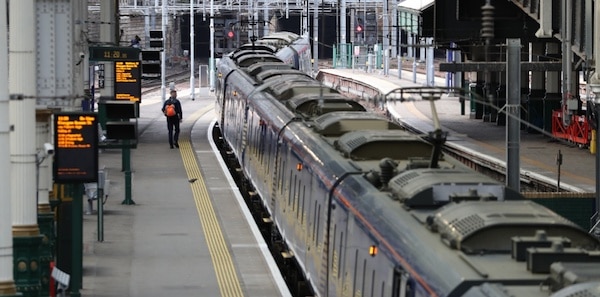RAIL unions welcomed the government’s decision to take control of Britain’s privately operated rail services today, but added that it should not have taken the Covid-19 crisis for public ownership to come into effect.
The takeover, which will initially last for six months, includes “transferring revenue and cost risk to the government,” meaning that the taxpayer will have to foot the bill for any costs involved.
Privateers will also be paid “a small predetermined management fee” for day-to-day running of services. Wages and conditions of rail staff are guaranteed by the Department for Transport.
The move has been welcomed by rail unions.
RMT general secretary Mick Cash said:
It is absolutely essential that the rail workforce get the same sort of guarantees and assurances that the government are offering the train operators.
RMT has been inundated with calls from members fearful that they are being left exposed and left behind. Their health, safety and livelihoods must be protected as the top priority.
The union wants absolute and cast-iron guarantees from the government, the train companies and the contractors that wages, jobs and pensions will be protected across the board for both directly employed and contracted staff with no exceptions.
He said it was crucial to maintain jobs and skills for when normal circumstances return.
Aslef general secretary Mick Whelan said:
The government has done the right thing at this difficult time to protect passengers and taxpayers and all of us who work on Britain’s railway system.
We all need to pull together to ensure that our country and our communities come out on the other side of this pandemic.
Mr Whelan called for protection to be extended to the rail freight industry.
TSSA general secretary Manuel Cortes said:
We welcome this move, but it’s sad that it has taken a pandemic for the government to take control of our railways.
Today is not the day to score political points, but I can only hope that at the end of the emergency period the government reflects on whether allowing private companies — predominantly the state-owned railway companies of our European neighbours — to make profits at the expense of British passengers and taxpayers should continue.

